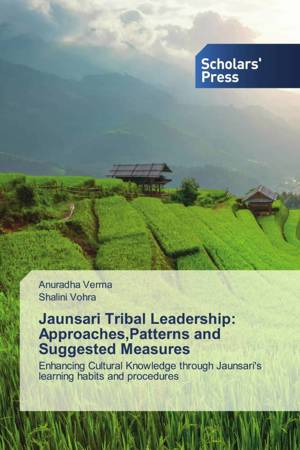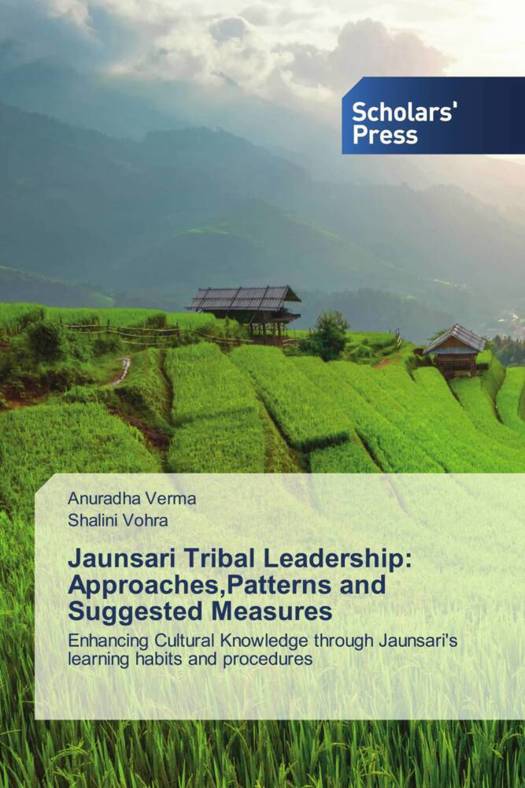
Bedankt voor het vertrouwen het afgelopen jaar! Om jou te bedanken bieden we GRATIS verzending (in België) aan op alles gedurende de hele maand januari.
- Afhalen na 1 uur in een winkel met voorraad
- In januari gratis thuislevering in België
- Ruim aanbod met 7 miljoen producten
Bedankt voor het vertrouwen het afgelopen jaar! Om jou te bedanken bieden we GRATIS verzending (in België) aan op alles gedurende de hele maand januari.
- Afhalen na 1 uur in een winkel met voorraad
- In januari gratis thuislevering in België
- Ruim aanbod met 7 miljoen producten
Zoeken
Jaunsari Tribal Leadership: Approaches,Patterns and Suggested Measures
Enhancing Cultural Knowledge through Jaunsari's learning habits and procedures. DE
Anuradha Verma, Shalini Vohra
Paperback | Engels
€ 86,95
+ 173 punten
Omschrijving
Tribes are an important component of Indian culture. They have a rich cultural legacy and artistic and artisanal skills, but they are still marginalized in higher education and many other facets of life. In comparison to any other single country in the globe, the Indian subcontinent has the biggest number of tribal communities' compound. This region's dominating Hindu culture can be seen as an example of cultural evolution, which appears to be a massive specific process of absorbing India's tribal population into the original Hindu caste system. The current study focused on the Jaunsari tribes of Dehradun, Uttarakhand, and their societal evolution with a focus on the socioeconomic growth occurring among diverse tribes in various parts of India.
Specificaties
Betrokkenen
- Auteur(s):
- Uitgeverij:
Inhoud
- Aantal bladzijden:
- 176
- Taal:
- Engels
Eigenschappen
- Productcode (EAN):
- 9783330653764
- Uitvoering:
- Paperback
- Afmetingen:
- 150 mm x 220 mm

Alleen bij Standaard Boekhandel
+ 173 punten op je klantenkaart van Standaard Boekhandel
Beoordelingen
We publiceren alleen reviews die voldoen aan de voorwaarden voor reviews. Bekijk onze voorwaarden voor reviews.









